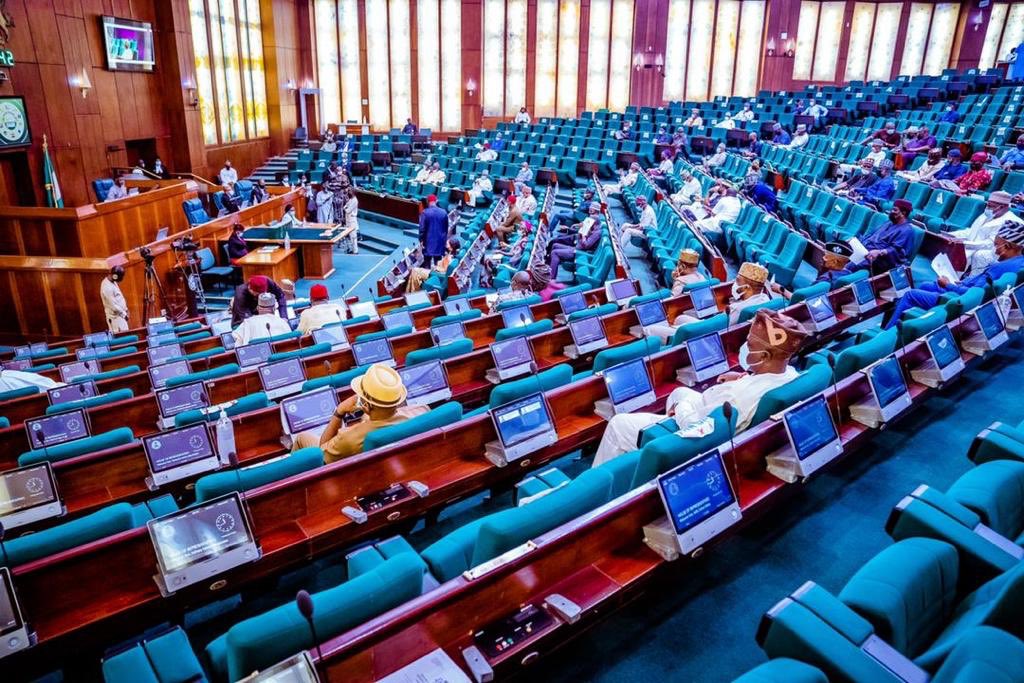On Thursday, the House of Representatives voted overwhelmingly against a motion urging the Federal Government to address the problems driving Nigerian professionals abroad in quest of better opportunities.

In a motion titled “Need to Declare Emigration of Young Nigerians Abroad A.K.A Japa Syndrome a National Emergency,” a new member of the House named Philip Agbese urged the government to “convene a national summit with key stakeholders to adequately address the “Japa Syndrome.”

The phenomena is commonly referred to as “Japa,” a Yoruba word that merely means to leave behind a difficulty or issue.
Additionally, Agbese pleaded with the House to “declare a state of emergency on the factors that lead young Nigerians to abandon Nigeria in favour of other countries.”
READ ALSO: 10th NASS Ledership: Yari Alleges Betrayal By Some Of His Colleagues
The legislator made the point that our young people are still one of our greatest assets. He continued, saying it hurts national pride when “our young bright minds leave the country in droves, conveying an impression that ‘Nigeria is a sinking ship that everyone is rushing to get out of’.” “Though the prospects of a growing Nigerian diaspora could be beneficial in a way, it should not be at the expense of our needed manpower,” he added.
Agbese added that major life choices, like whether to remain in one’s nation or move abroad, shouldn’t be based on problems like insecurity, a deficient health care system, a failing educational system, or a weak economy, among others.
The legislator highlighted data from the Nigerian Economic Summit that showed an increase in the number of young Nigerians moving overseas. He added that according to recent surveys by the African Polling Institute, 69% of young people would like to move overseas if given the chance or if the opportunity arises.
According to the United Nations Department of Economic and Social Affairs’ report on international emigration from Nigeria in 2020, he said, there is a 40% increase in the number of young Nigerians leaving the country compared to the number recorded in 2019.
Agbese said, “The House is concerned that the growing statistics of young Nigerians leaving Nigeria and securing permanent residence in the United Kingdom, the United States of America and Canada portends a grave danger for our nation in many ways from economic to intellectual and social aspects.
“The House is also concerned that the Nigerian population is made of two-thirds of persons under the age of 30 and a good number of these persons are already afflicted with what today is acceptably referred to as the ‘Japa Syndrome,’ as estimates indicate a staggering tens of thousands have relocated to the USA, Canada, South Africa and, even, Gambia over the last two years;
“The House is worried that the eagerness to migrate to countries that offer hope seems to have a compelling influence. The House is also worried that those leaving Nigeria are not just the poor but middle class who possess skills/workforce, including bankers, lecturers, health care practitioners, doctors, nurses, and trained manpower, all of whom were trained in Nigeria and emigrating at a time when their services are needed to build a strong and vibrant economy in Nigeria.
“The House is disturbed that if this scenario continues with our able minds, brains and skilled personnel leaving, Nigeria may fall into a grave crisis in our critical sectors from education to healthcare, thereby making a bad situation worse.”
Dennis Idahosa seconded the motion, but Sada Soli raised a constitutional point of order, arguing that if it were approved by the parliament, it would violate Nigerians’ fundamental rights.
The Constitution’s Chapter 4 discusses essential rights, while Section 35 discusses an individual’s personal liberty, according to Soli. Even if this motion violates the Constitution, it appears to be nationalistic in its current form.
“It is the liberty of a Nigerian if he is qualified and he is normal, and he has all the granted right of movement (to) anywhere he wants. It is the right of a Nigerian if he has the right qualifications, to go anywhere to source for a living. The Constitution of Nigeria allows even dual citizenship, talk less of moving somewhere to earn a living. If we allow this motion on this floor, it contravenes the provisions of the Constitution of the Federal Republic of Nigeria.”
Ahmad Jaha, a leading member of the House who spoke against Soli, claimed that the motion focused more on the causes of the enormous migration from Nigeria than it did on imposing travel restrictions. The legislators were admonished by him to “be mindful of the prayers of the motion before killing it.”
Jaha said, in part: “The mover of the motion is not praying that everybody should be stopped from going abroad. We should take this into consideration. But it is advising because we have to tell each other the truth; the factors enumerated, which are the actual factors or reasons behind people leaving this country to seek greener pastures somewhere (else).
“What he is trying to say in a nutshell is that the international community has identified the reasons why Nigerians are compelled to go outside the country. What he is saying now is ‘let there be a national summit so that all these factors will be given priority, so that at the end of the day Nigerians will be discouraged from going abroad. So, as far as I am concerned, this motion is apt and it should be considered.”
“As good as the motion may be, first the fundamental issue raised in the Constitution; no law, including our motions and bills…if you go to Section 1(3) of the Constitution, it says any law that is inconsistent with the Constitution to the extent of that inconsistency is best null and void,” said Ahmed Wase, the immediate past Deputy Speaker of the House. So, in my opinion, we must rule on the question of order (made by Soli) before proceeding, or we will be contributing to a violation of our own constitution.”
When the Speaker finally put the resolution to a vote, the legislators voted unanimously against it.



















